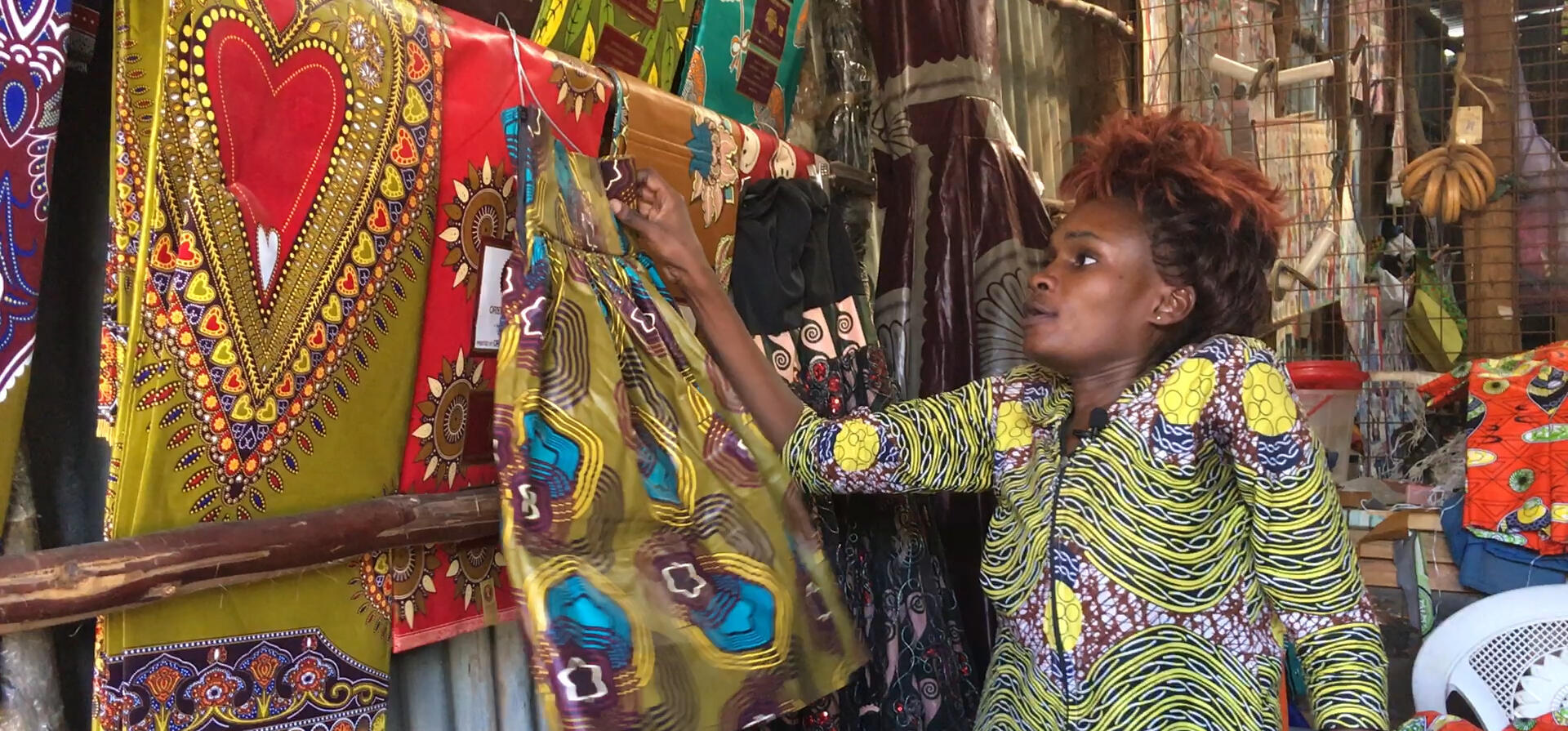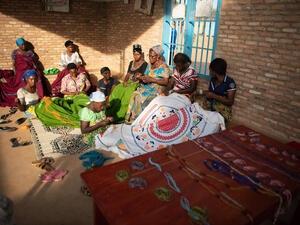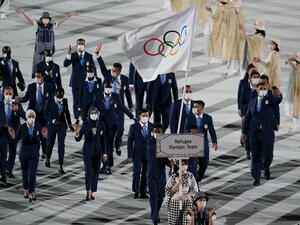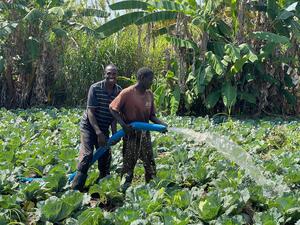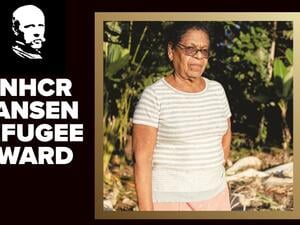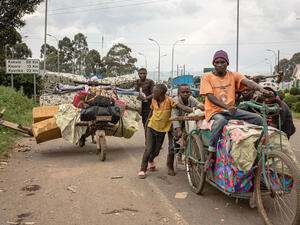Congolese tailor with disability stitches new life in Kenya
Hota Biclere expertly manoeuvres brightly coloured fabric under the whirring needle of her sewing machine. The fabric gradually takes the shape of a beautiful outfit.
She pauses sewing as Mary, a South Sudanese refugee and one of her best customers, walks into the shop. Fingering a beautiful burgundy dress, Mary removes it from the hanger and retreats to a back room where she tries it on.
“What I like about her is that she keeps her promise,” Mary says, beaming as she shows off the dress, which the expert tailor made in just two days. Hota has succeeded in satisfying yet another customer.
“I used to miss school a lot."
A refugee from the Democratic Republic of Congo (DRC), Hota lives in Kenya’s Kakuma Refugee Camp. She lives with a debilitating spinal condition which left her with a curved back and limited movement at a young age.
“When I was eight, I developed bone tuberculosis which affected my spinal cord,” she explains.
At the time, the 35-year-old mother of two was in grade three at school and her education suffered greatly as a result of the condition.
“I used to miss school a lot,” she says. “Finally in grade six, I stopped going altogether.”

Congolese refugee tailor Hota Biclere sews a dress in her workshop and boutique in Kakuma refugee camp, Kenya.
But Hota’s great determination – and skill with a needle – have allowed her to prevail. Uprooted by conflict in the DRC in 2012, she fled to Kakuma where, mere months upon her arrival, she found work as a dress maker.
“I would only spend a little of what I earned and save the rest of the money,” she recalls.
After working long hours for seven months, Hota had saved enough money to buy her own sewing machine. She started her tailoring business and soon bought another machine.
Three years later, she was able to access a loan of US$1,000 through UNHCR, the UN Refugee Agency’s partner, Action Africa Help International.
“I bought two other machines and increased my stock of fabric,” she says.
Today, Hota’s persistence and hard work has paid off. She has seven sewing machines and employs seven tailors, who she trains herself. She pays them on commission, based on how many items of clothing each one sews.
While the business is thriving, her condition often makes it hard for her to sew. She concentrates mainly on cutting the fabric, leaving the tailors to do most of the stitching.
“Sometimes it is very difficult, but my children depend on me so I have to persevere for their sake,” she says.
"Almost all my clients are referred by happy customers."
Most of her clients are refugees but she also has Kenyan clients, including staff from the various humanitarian agencies working in Kakuma.
“Marketing is by word of mouth and almost all my clients are referred by happy customers,” she explains.
This year, UNHCR and other UN agencies will mark International Day of Persons with Disabilities by striving to empower people with disabilities and ensuring inclusiveness and equality.
In Kakuma, UNHCR coordinates the delivery of services by various agencies to people with disabilities in the camp. Patrice Ahouansou, UNHCR’s Senior Protection Officer here says these services ensure that refugees who live with disabilities are empowered. UNHCR and their partners work hard to ensure that refugees like Hota are fully included in this process.
“Some of the challenges they face in the camp include not being able to participate or be fully included in activities and also lack of full acceptance by the community,” Ahouansou explains.
In response, UNHCR helps to establish and support specific community support groups and community-based organizations that work to build the capacity of people who care for people living with disabilities.
“We are also creating awareness in the community and advocating for the rights of people with disability,” Ahouansou adds.
In the meantime, refugees like Hota will continue to inspire others in their communities.

